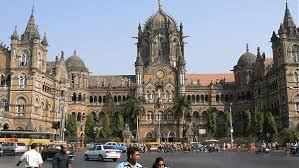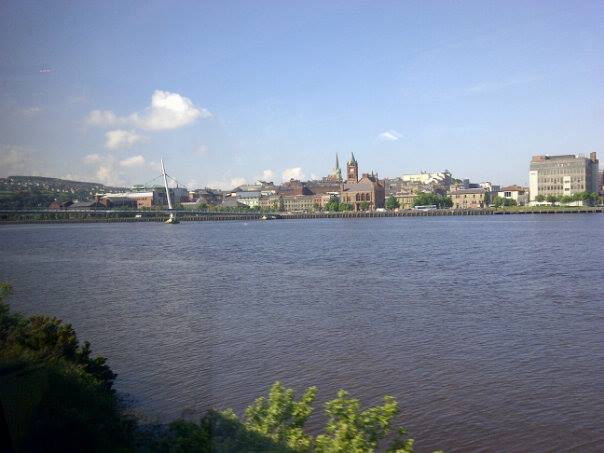http://social-media-news.com/link/1122549_bombay-mix-ups-the-politics-of-placename-changes
A few days ago, before hitting the headlines with the news that his newspaper would stop printing next month and become an online-only publication, the London Independent‘s editor Amol Rajan announced that henceforth the paper would stop calling India’s most populous city, Mumbai, and revert to using its previous name of Bombay.
Explaining the move to Dan Damon on the BBC World Service, Rajan said that he wanted to use the name Bombay as a symbol of the city having been a ‘melting pot of different cultures’ for most of its history. It is this tradition, Rajan has said, which he considers as being harmed by the Hindu nationalist drive to rename the city in the 1990s – an ideology shared by the governing BJP and India’s prime minister Narendra Modi:

Even before the rise of Hindu nationalism, there had already been moves towards changing placenames in India, to make them sound less like attempts by English speakers to pronounce the names. Thus, Bangalore became Bengaluru, Calicut became Kozhikode, and Bulsar became Valsad.
Thus far, reaction in India to the Independent‘s Mumbai/Bombay decision has not been overly hostile – although it has been critical. One critic tweeted:
However, this argument doesn’t always win through: nationalism was also behind the 1972 announcement by the government in Colombo that their nation of Ceylon would henceforth be known as Sri Lanka, and even in the dark days of former president Rajapaksa’s bloody crushing of the LTTE in 2009 nobody thought of calling the country anything other than Sri Lanka. Similarly, an ever-confident People’s Republic of China has successfully got the rest of the world to adapt to changes in placenames in that country: thus, virtually every writer and commentator freely refers to Beijing, Guangzhou and Nanjing, rather than Peking, Canton, and Nanking. For the same reason, for all the valid criticism of the excesses of the Turkish state, nobody thinks to call the cities of Ankara, Izmir, and Istanbul by their previous names of Angora, Smyrna, and Constantinople.
It is not just in developing countries that drives to change placenames can take place. In Australia, for example, people are increasingly referring to the enormous sandstone monolith near Alice Springs by its Aboriginal name of Uluru, instead of the more colonial-sounding term Ayers Rock. Similarly, more people are referring to Australia’s nearest neighbour as Aotearoa New Zealand – giving reference to that country’s Maori name (which in English means “Land of the Long White Cloud”).
Then again, placenames are forms of symbols, and when they are changed it can have an impact on the symbolism. The Derry/Londonderry naming dispute is a classic case in point, and I know it has been given a fair airing on Slugger on several occasions already, but it is worth looking at again. Put simply, Unionists prefer the term Londonderry and nationalists Derry, both because of the symbolism of the British connection implied in the “London” part of the name. The local authority’s name was altered to Derry City Council in 1984, but the dispute is continuing, and the chances are that the name Londonderry will continue to be used by Unionists even if the Queen can be persuaded to change the city’s royal charter.

Ultimately, when placenames are changed for whatever reason, the evidence from India, China, Sri Lanka, Turkey and beyond is that most people get used to the new name without too much difficulty. It does not always turn out that way, however, but it’s a fairly safe bet that all of Derry’s names are more likely to survive than that of Bombay.
A few days ago, before hitting the headlines with the news that his newspaper would stop printing next month and become an online-only publication, the London Independent‘s editor Amol Rajan announced that henceforth the paper would stop calling India’s most populous city, Mumbai, and revert to using its previous name of Bombay.
Explaining the move to Dan Damon on the BBC World Service, Rajan said that he wanted to use the name Bombay as a symbol of the city having been a ‘melting pot of different cultures’ for most of its history. It is this tradition, Rajan has said, which he considers as being harmed by the Hindu nationalist drive to rename the city in the 1990s – an ideology shared by the governing BJP and India’s prime minister Narendra Modi:
In choosing Bombay over Mumbai, what I’m trying to do is to say that India’s better tradition is one that’s open to the world, and what’s at stake with Bombay as a city is the whole idea of a cosmopolitan port city that is the gateway to and of India, and I think that if you choose the word Mumbai instead of Bombay you collude with the nationalists in closing Bombay off from the world, and I think that that’s a very bad thing to do.In the same interview, Rajan half-jokingly added that he hoped that his familial connections with the city ‘might protect me a little bit.’ The Independent‘s editor was himself born on India’s second most populous city of Kolkata – although it was still known as Calcutta at the time, in 1983. On India’s west coast, the name Mumbai was officially adopted for the city in 1995 by the far-right party Shiv Sena, which had been in power in the municipal council at the time. The name derives from the Hindu goddess Mumbadevi, and inhabitants had been using Mumbai for many years previously – although people in the city tend to use Mumbai and Bombay interchangeably in conversation. The name Bombay, meanwhile, is thought to derive from Bom Bahia, the Portuguese words for Good Bay.

The Chhatrapati Shivaji railway station, Mumbai (or is it Bombay?)
Thus far, reaction in India to the Independent‘s Mumbai/Bombay decision has not been overly hostile – although it has been critical. One critic tweeted:
Might be better if @amolrajan took a strong line against actual Hindu extremism rather than just the name of city…while another commented:
“We shall henceforth refer to Mumbai as Bombay” – says The Independent, a newspaper printed in Londonium in Britannia.Rajan’s idea that calling Mumbai by a name decided for it by ultra-nationalists effectively helps to do their work for them has essentially been the same argument for calling Aung San Suu Kyi’s country, Burma. Since 1989 the military dictatorship in charge of the place has insisted that the country’s proper name is Myanmar, and broadcasters and journalists are increasingly using that name instead of Burma. Whether they will continue to do so could well depend on how the junta copes with the ongoing fallout from Suu Kyi’s NLD’s stunning victory in last autumn’s parliamentary elections.
However, this argument doesn’t always win through: nationalism was also behind the 1972 announcement by the government in Colombo that their nation of Ceylon would henceforth be known as Sri Lanka, and even in the dark days of former president Rajapaksa’s bloody crushing of the LTTE in 2009 nobody thought of calling the country anything other than Sri Lanka. Similarly, an ever-confident People’s Republic of China has successfully got the rest of the world to adapt to changes in placenames in that country: thus, virtually every writer and commentator freely refers to Beijing, Guangzhou and Nanjing, rather than Peking, Canton, and Nanking. For the same reason, for all the valid criticism of the excesses of the Turkish state, nobody thinks to call the cities of Ankara, Izmir, and Istanbul by their previous names of Angora, Smyrna, and Constantinople.
It is not just in developing countries that drives to change placenames can take place. In Australia, for example, people are increasingly referring to the enormous sandstone monolith near Alice Springs by its Aboriginal name of Uluru, instead of the more colonial-sounding term Ayers Rock. Similarly, more people are referring to Australia’s nearest neighbour as Aotearoa New Zealand – giving reference to that country’s Maori name (which in English means “Land of the Long White Cloud”).
Then again, placenames are forms of symbols, and when they are changed it can have an impact on the symbolism. The Derry/Londonderry naming dispute is a classic case in point, and I know it has been given a fair airing on Slugger on several occasions already, but it is worth looking at again. Put simply, Unionists prefer the term Londonderry and nationalists Derry, both because of the symbolism of the British connection implied in the “London” part of the name. The local authority’s name was altered to Derry City Council in 1984, but the dispute is continuing, and the chances are that the name Londonderry will continue to be used by Unionists even if the Queen can be persuaded to change the city’s royal charter.

A view of Derry (or is it Londonderry?)
No comments:
Post a Comment